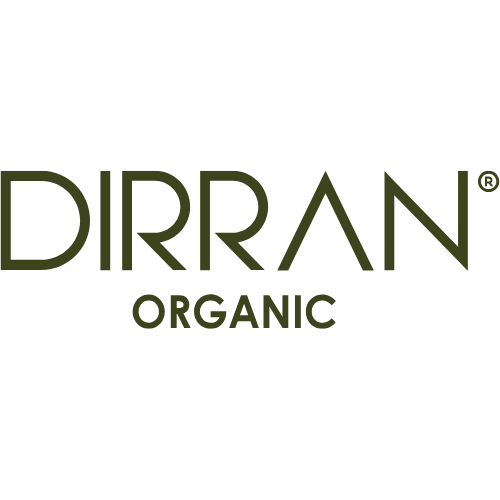What Makes a Face Moisturizer the Best for Dry Skin?

Dry skin lacks sufficient moisture and often has a compromised skin barrier, leading to tightness, flakiness, and discomfort. The best face moisturizer for dry skin needs to deeply hydrate, lock in moisture, and repair the skin’s natural barrier — all without feeling heavy or greasy.
Key ingredients that make a moisturizer ideal for dry skin include:
-
Hyaluronic acid, which draws in water to deeply hydrate.
-
Glycerin or other humectants that attract moisture.
-
Ceramides, which help rebuild and strengthen the skin’s barrier.
-
Fatty acids or emollients (like shea butter, squalane, or plant oils) to provide nourishment and smoothness.
-
Occlusives (like petrolatum or dimethicone) in richer formulations to seal in hydration.
A great moisturizer for dry skin also balances richness with a non-irritating formula so that it works both day and night.
Why Using a Moisturizer Is Crucial for Dry Skin
-
Prevents Moisture Loss
Dry skin tends to lose water more rapidly. A suitably formulated moisturizer helps trap water in the outer layer of skin and prevents evaporation. -
Strengthens the Skin Barrier
When the barrier is weak, skin becomes more susceptible to irritation, redness, and sensitivity. Moisturizers with ceramides and essential lipids restore the integrity of this barrier. -
Improves Comfort and Texture
Properly hydrated skin feels softer, smoother, and more resilient. It reduces tightness and flaking, leaving your face more comfortable throughout the day. -
Helps Other Skincare Ingredients Work Better
Hydrated skin can absorb active ingredients more effectively and tolerates them better—making treatments like retinoids or acids less irritating.
Choosing the Best Face Moisturizer for Dry Skin
When you're selecting a moisturizer, consider the following factors:
Skin Type & Sensitivity
If your dry skin is also sensitive or reactive, opt for fragrance-free and non-comedogenic formulas. Look for soothing ingredients like niacinamide or oat extract to calm redness.
Texture Preference
-
Creams: Richest texture, often ideal for very dry or winter skin.
-
Lotions: Lighter than creams but still provide good hydration.
-
Balms: Very occlusive, great for severe dryness or very cold weather.
Ingredient Quality
Choose moisturizers that clearly list hydrating and barrier-repairing ingredients. Avoid heavy silicones if you prefer a more “natural” feel, or choose a balance based on how your skin reacts.
Purpose
Decide if you need just daily hydration, or if you want additional benefits like anti-aging, brightening, or plumping. Many moisturizers for dry skin come with added actives like peptides, vitamin E, or antioxidants.
Season & Climate Consideration
In dry or cold climates, richer creams are more effective; in more humid weather, a lighter lotion might feel more comfortable.
How to Use a Moisturizer for Maximum Benefit
-
Apply After Cleanser (While Skin Is Damp)
Use moisturizer right after cleansing (and any toners or serums) when your skin is still slightly damp—this helps trap water. -
Use the Right Amount
A nickel-to-quarter-sized amount is usually enough. Using more doesn’t always mean better benefit; it can just feel greasy. -
Use Morning & Night
-
In the morning, pair with SPF. A rich moisturizer + sunscreen protects dry skin from UV damage.
-
At night, use a richer or slightly heavier formula to help skin repair itself during sleep.
-
-
Layer Smartly
If using serums (like hyaluronic acid), apply moisturizer over them to seal in the active ingredients. -
Don’t Skip Around
Make using moisturizer a consistent habit—skipping it can undermine your skin barrier, especially for dry skin.
Best Ingredients to Look For
Here are some standout ingredients in moisturizers that are especially effective for dry skin:
-
Hyaluronic Acid: Hydrates deeply by binding water to the skin.
-
Glycerin: A humectant that draws moisture in.
-
Ceramides: Strengthen and restore the skin barrier.
-
Shea Butter / Cocoa Butter: Rich emollients that provide softness.
-
Squalane: A lighter oil that mimics our skin’s natural lipids.
-
Peptides: Support skin repair and elasticity.
-
Antioxidants: Such as vitamin E, green tea extract, or niacinamide, which protect and calm the skin.
Common Mistakes to Avoid
-
Skipping Moisturizer Because of Oily Feeling: Even dry skin may “feel” oily with the wrong product; try switching textures instead.
-
Not Reapplying in Harsh Weather: Cold wind or dry air depletes moisture—reapply or use richer creams.
-
Over-Exfoliating: Stripping away too much outer skin with strong exfoliants makes dryness worse; always follow with a good moisturizer.
-
Ignoring Body Moisturization: Dryness often affects not just the face, but neck and body—use appropriate moisturizers there, too.
Frequently Asked Questions (FAQs)
Q: Will a richer moisturizer clog my pores?
A: Not necessarily. If a moisturizer is non-comedogenic and balanced with humectants and emollients rather than only heavy occlusives, it typically won’t clog pores—even on dry skin.
Q: Can I use a facial oil instead of a moisturizer?
A: Facial oils can help seal in moisture, but they don’t always provide the same hydrating and barrier-repair benefits as a full moisturizer. Use oil on top of a moisturizer or as a final step.
Q: How long until I see improvements?
A: Most people see better skin hydration, less flakiness, and improved comfort within a week of consistently using the right moisturizer.
Q: Should I change my moisturizer in different seasons?
A: Yes. In colder or drier months, switching to a creamier, more occlusive moisturizer can help; in more humid or warm weather, a lighter lotion may be more comfortable.
Why Investing in the Best Face Moisturizer for Dry Skin Is Worth It
Dry skin isn’t just a cosmetic issue—when left unaddressed, it can lead to a weakened skin barrier, sensitivity, and even early signs of aging. Using the best face moisturizer for dry skin not only soothes and hydrates, but it also protects your skin from environmental stressors. Over time, a quality moisturizer helps improve skin resilience, making your face feel more balanced, smooth, and healthy.
Final Thoughts
Finding the best face moisturizer for dry skin means looking for a formula that hydrates deeply, supports the skin barrier, and feels comfortable on your skin. Focus on ingredients like hyaluronic acid, ceramides, and rich emollients to give your skin long-lasting moisture and protection. Apply consistently morning and night, adjust your choice based on your climate and skin’s changing needs, and layer wisely with other products. With the right moisturizer, you can transform dry, tight skin into a soft, supple, and radiant complexion.






